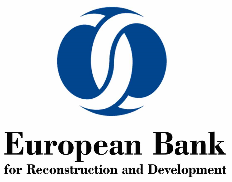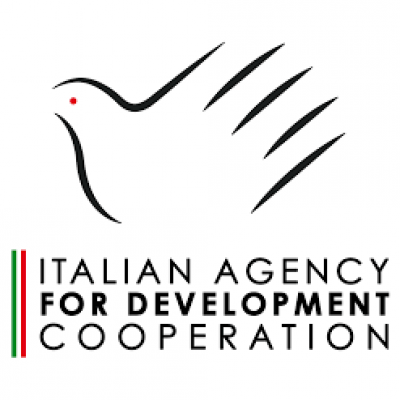Details
Description
Background
UNDP Albania is committed to establishing an Integrated Case Management model (ICM), which provides targeted and inclusive social and employment services, in line with the specific and individual needs of the vulnerable communities. The main target of this intervention are the individuals who receive social assistance, and supports to create an enabling environment for their sustainable transition from social assistance to employment. UNDP Albania has agreed to support the national institutions through the design of an ICM model, train the respective staff of both the social and employment services at the local level and conduct an evaluation on the impact of the intervention.
In the recent years, UNDP Albania has been engaged and has actively supported the employment services reform process outlined in the National Employment and Skills Strategy (NESS 2019-2022). More concretely, the National Agency for Employment and Skills (NAES) has been supported to optimize its EPPs portfolio and provision, as set out in the objectives of the NESS 2019-2022. The NAES aims to develop and deliver a service portfolio that is based on a balanced demand and supply-oriented approach, recognizing and fostering the potential of various profiles of job seekers through tailored action plans and mediation measures.
UNDP Albania has provided technical expertise to NAES on the finalization of the employment service portfolio. The reform of the Public Employment Services aims to (1) Introduce an early intervention approach based on econometric profiling techniques to identify individuals at risk of long-term unemployment; (2) Expand the coverage of active labour market programmes and support it by a three-tiered service delivery system and modern programme referral methods; (3) Deploy specific services and programmes to ease the transition of individuals from social assistance to employment.
During 2019, the Active Labour Market Programmes were thoroughly evaluated in terms of the degree to which they addressed the needs of the client base of NAES and the implementation procedures. Comparing to the best practices in the EU and the region, the main bottlenecks identified with the typology and the implementation of the EPPs were:
Employer driven implementation, not addressing the needs and the added vulnerabilities of the unemployed jobseekers;
Creaming effects of targeting, where jobseekers who were easier to integrate to the labour market were mainly engaged in these programmes;
Limited typology of programmes, and limited type and number of partner employers;
The majority of the EPPs funds were disbursed on employer subsidies and on training, and the general range of EPPs offer was limited.
In addition to the services delivered in-house and considering the limited human capacities of the PES staff and the limited outreach to some more rural areas, MFE is considering outsourcing some of the more specialized service packages to third parties. Such a modality is being considered for vulnerable groups, who require intensive employment counselling and coaching, combined with social services that address particular unmet social needs.
As such, UNDP in close collaboration with the employment offices, non-public providers, vulnerable jobseekers has designed an ICM model, which combines employment and social services, tailored to the needs of people who are recipients of social assistance, and supports an enabling pathway from social assistance to employment (see annex 1). This approach is in line with the national goals to support the transition period of exiting from cash assistance programme, outlined in the exit strategy and Action Plan for social assistance beneficiaries. The exit strategy puts the main focus on labour market integration, i.e. sustainable employment, and thus NAES is considered as the institution who will need to provide the necessary individual support to this group.
Duties and Responsibilities
Under the overall guidance of the UNDP Programme Specialist and Programme coordinator and in close collaboration with the national institutions, the consultant is expected to contribute to the following tasks:
Prepare monthly reports on the number of people referred from the social services to the employment offices.
Support the municipality and the employment office to draft integrated treatment plans for the people in economic aid.
Assess the current procedures implemented by the employment offices and the social services in implementing the Integrated Case Management.
Assess the forms used in the databases of social services and employment offices and recommend improvements.
Communicate with the community to identify people who are potential beneficiaries of social services of employment services.
Deliverables
Monthly statistical report on the families and individual treated by the employment office and the social services;
Operational procedures tested and endorsed which regulate the implementation of the Integrated Case Management;
Report with recommendations on improvements in the ICT systems of both institutions;
Final report of the assignment.
Competencies
Corporate Competencies:
Demonstrating integrity by modelling the UN’s values and ethical standards;
Promotes the vision, mission, and strategic goals of UNDP;
Displays cultural, gender, religion, race, nationality and age sensitivity and adaptability;
Treats all people fairly without favouritism.
Core Competencies:
Planning & Organizing – Develops clear goals in line with agreed strategies, identifies priorities, foresees risks and makes allowances accordingly;
Leadership;
Empowering others to translate vision in results;
Managing performances – make sure that roles, responsibilities, and reporting lines are clear, regularly discuss performance and provide feedback and coaching to staff;
Judgment/Decision Making – identify key issues in a complex situation, propose a course of actions or make a recommendation based on all available information.
Required Skills and Experience
Education
Bachelor degree (or equivalent) in a relevant field (such as Social Policy) or in a general field (Law, Business Administration, Economics, Social Sciences),
Experience
Minimum 2 years’ experience in working with employment or social service policy design in Albania;
Proven experience with employment services and social services in the country.
Prior experience in working with NGOs that provide services to vulnerable communities.
Language requirement:
Excellent communication and report-writing skills in English
Evaluation Procedure
UNDP applies a fair and transparent selection process that would consider both the technical qualification of Individual Consultants as well as their financial proposals. The contract will be awarded to the candidate whose offer:
Is deemed technically responsive / compliant / acceptable (only technically responsive applications / candidates will be considered for the financial evaluation)
And has obtained the highest combined technical and financial scores.





